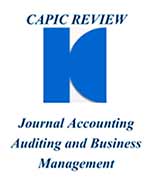Training for research: an investigative approach to culture and stockholders knowledge
Published 2016-12-10
Keywords
- education,
- Accounting,
- knowledge,
- research,
- training
How to Cite
Abstract
Higher education in Colombia, presents significant changes aimed at ensuring the high quality level and relevance. With Law 30 of 1992, the basis on which the system of quality assurance in higher education is built occurred; It also defines the legal field, establishes the principle of quality service, promotes the creation of advisory groups such as the National Council of Education (CESU); regulates the functions of the Colombian Institute for the Promotion of Higher Education (ICFES), teacher’s evaluation, consider the creation of bodies such as the National Accreditation System and information systems.
Aware of the responsibility in accounting education, it is necessary to align the requirements of the State, the productive sector and society. The objective of this research was aimed at identifying the research culture in processes of academic training and knowledge generation in Accounting programs in Public Institutions of Higher Education located in the Metropolitan Area of Bucaramanga.
The scope focused on giving a look to academic programs and curriculum trajectory and impact in the region, to know how perceive students, teachers and deans, quality of education, knowledge generation and research actors.
Methodologically, the study is based on qualitative and quantitative, descriptive paradigm with ethnographic approach; gathering information in a questionnaire to students and teachers, semistructured interviews to deans and the Institutional Education Project (PEI) was observed curricular guidelines interviews was applied. The results highlight that students see research as something important but resist it; participation in research is limited, have weaknesses in reading and writing habits; teachers have strengths in vision research; exercise critical thinking, encourage teamwork activities and meaningful learning.
Downloads
References
2. Coelho da Rocha, L. F. (2004). Aportes sobre la doctrina científica del neopatrimonialismo contable. Contabilidad & Auditporía, 129, 144.
3. Geertz, C. (1994). Descripción densa: hacia una teoría interpretativa de la cultura. En la interpretación de las culturas. Barcelona: Gedisa.
4. Guber, R. (2.000). La etnografía. Método, campo y Reflexibilidad. Pag. 13. Bogotá: Norma.
5. Lara, M. E. (2011). Fundamentos de investigación. Un enfoque por competencias. Bogotá: Afahomega.
6. León Martínez, G. (2008). La resignificación de los contextos del conocimiento a proposito del plan de formación contable. Perspectiva critica de la Contabilidad. Reflexiones y criticas contables alternas al pensamiento único, 127-158.
7. López Jímenez, N. (2001). La de-construcción curricular. Bogotá: Cooperativa Editorial Magíterio.
8. Martínez, M. (2.000). La investigación cualitativa Etnografica en educación.
9. Monje Alvarez, C. A. (2011). Metodología de la investigación cuantitativa y cualitativa. Guía didactica. Neiva: Universidad Surcolombiana.
10. Ordoñez, L. (2008). Contara el adiestramiento contable: invitación a la rutra epistemológica en la formación del Contador Público. Perspectivas críticas de la.
11. Restrepo, B. (2003). Conceptos y aplicaciones de la investigación formativa y criterios para evaluar la investigación científica en sentido estricto.
12. Ritzer, G. (2002). Teoría sociológica moderna. Madrid: Mc Graw Hill.
13. Rueda Delgado , G. (2014). El papel de las publicaciones en medio de las tensiones entre la investigación académica y la práctica contable. Cuadernos de contabilidad número 38, 357-361.
14. Sánchez, W. (2004). Educación contable, calidad educativa, Ecaes y pedagogía. Contabilidad & Auditoria, 141, 155.
15. Sandoval Casilimas, C. (1996). Investigación Cualitativa. Bogotá: ICFES.
16. Sandoval, C. (1996). Investigación Cualitativa . Bogotá: ICFES.
17. Suáres Henao, A. V., & Contreras Patiño, I. V. (2012). La formación integral del contador público colombiano desde la expectaiva internacional: un análisis a partir de los estándares internacionales de educación IES. Gestión & Desarrollo. 9(1), 175-186.
18. Unigarro, M. (1999). Introducción a las teorías educativas contemporáneas.
19. Wright, S. (2005). Antrhopology of organizations. Routledge, Londres.


































